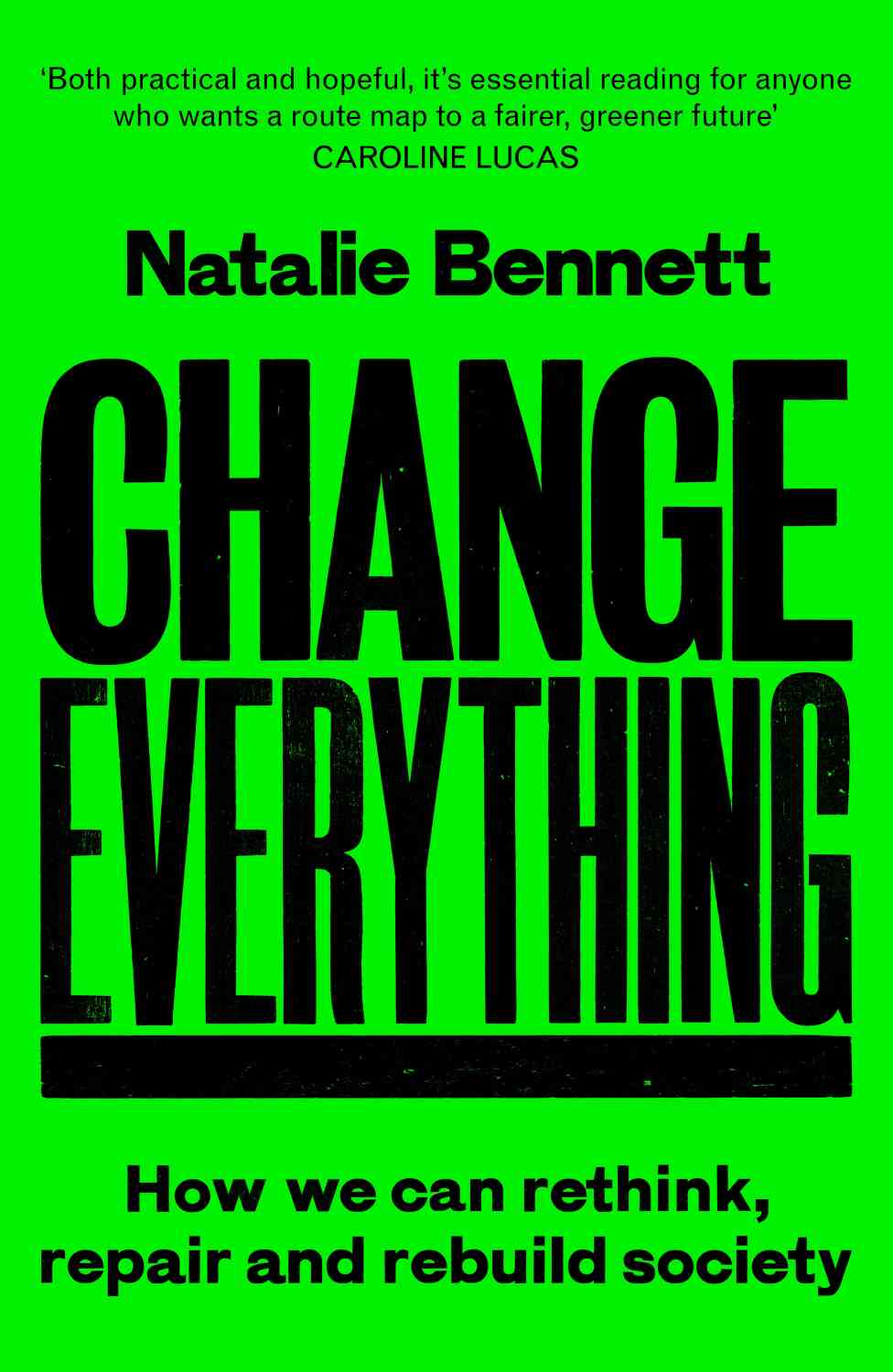Liam Byrne reviews Baroness Bennett's 'Change Everything'
Tower Bridge: Vegetable allotment | Image by: Jeffrey Blackler / Alamy Stock Photo
4 min read
Although its proposed solutions may fail the plausibility test, the real joy of this book is to be found in the breadth of Baroness Bennett’s reading and experiences
I like utopias. I’ve been reading them since my devoted sixth-form history teacher, Ms Powell, instructed me to read Thomas More’s classic text of 1516. Natalie Bennett’s new book Change Everything has all the joys and frustrations of the genre, albeit vitalised throughout by her extensive reading, the stories of her diverse career, and the conversations born from many hours spent proselytising her case.
As you might expect, the book offers a tour of, on one hand, the sins of the earth, and, on the other, a dream of something different – a catalogue of well-rehearsed, radical ‘big ideas’. The challenge, of course, is the lack of anything resembling a path – or dare I say a ‘political project’ – to link the two. Nevertheless, the book serves those on the left by helping map both the inspirations we share and at least bits of a critique of the world’s predicament we hold in common.
There is a long list of evils: from “bullshit jobs” to consumerism, “clone towns”, advertising, the way we measure GDP, oligarchs and the party-funding system, financialisation, colonialism, neoliberalism, planned obsolescence in general, and ‘smart toasters’ in particular. Much of this will strike a chord with those on the left.
It’s a well-grounded text, a hallmark of a committed radical
Natalie’s solutions definitely pass the ‘radical’ test but, sadly, may fail the ordeal of plausibility. She would no doubt chide me for a lack of boldness, but the hard knocks of election defeats have a habit of forcing practicing politicians into compromises with the electorate. There are ideas with which I agree: radical devolution, food growing in cities, regional banks, closing down tax havens, prevention-focused healthcare, repurposing beautiful old buildings for social housing, and tackling the advertising of alcohol.
But ideas like universal basic income, free lifelong education, an autarkic food system, ubiquitous co-ops, minimising trade, modern monetary theory, Cuban-style healthcare, not-for-profit pharmaceutical firms, removing police from schools, and rejecting competition, aspiration, or the joy of pursuing a vocation are, I fear, unlikely ever to command a democratic majority. And there is little reckoning in the pages of Change Everything about why not, for it has a lacuna where a political project should sit.
In the 30 lines on “a route map”, there isn’t a costed plan (beyond a call for crowdfunding), or a path to power other than trying to persuade the ruling party to surrender office through proportional representation and a people’s constitutional assembly. In a future revised edition Natalie might also want to feature some analysis on why Reform scored twice as many votes as the Greens and what to do about that.
 The book’s joys, for me, are in listening to the breadth of both Natalie’s reading and her experiences. Her pages are peppered with references to the abbot Adomnán, Betty Friedan, Douglas Adams, Emily St John Mandel, Milan Kundera, the London Library history book club, her many different jobs, and her conversations in fascinating places – from COP to Birmingham Prison. It’s a well-grounded text, a hallmark of a committed radical.
The book’s joys, for me, are in listening to the breadth of both Natalie’s reading and her experiences. Her pages are peppered with references to the abbot Adomnán, Betty Friedan, Douglas Adams, Emily St John Mandel, Milan Kundera, the London Library history book club, her many different jobs, and her conversations in fascinating places – from COP to Birmingham Prison. It’s a well-grounded text, a hallmark of a committed radical.
It was the great John Bunyan who first explained that fear gives us caution while hope gives us energy, and reformers need both if politics is to flourish. This book should give practical idealists not a blueprint for office but the stimulus to think harder and bolder about a greener future people will vote for.
Liam Byrne is Labour MP for Birmingham Hodge Hill & Solihull North and chair of the Business and Trade Select Committee
Change Everything: How We Can Rethink, Repair and Rebuild Society
By: Natalie Bennett
Publisher: Unbound
